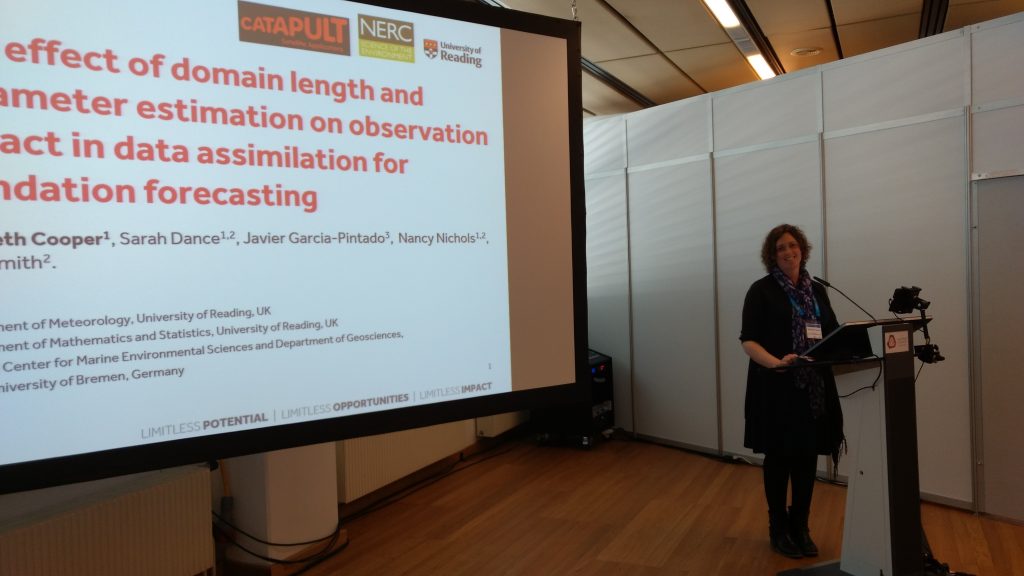
by Liz Cooper
The 2017 Annual European Geosciences Union (EGU) conference was held at the International Centre in Vienna from 23rd to 28th April. During that time over 14,000 scientists from 107 countries shared ideas and results in the form of talks, posters and PICOs .The PICO (Presenting Interactive COntent) format is a relatively new idea for presenting work, where participants prepare an interactive presentation. In each PICO session the presenters first take turns to give a 2 minutes summary of their work for a large audience. The PICOS are then each displayed on an interactive touch screen and conference delegates can chat to the presenters and get further details on the research, with the PICO for illustration. This format has features of both traditional poster and oral presentations and provides a great scope for audience participation. I saw several which took advantage of this, including a very popular flood forecasting adventure game by a fellow Reading Phd student Louise Arnal.
I was delighted to be able to present some of my own recent results at EGU, in a talk titled ‘The effect of domain length and parameter estimation on observation impact in data assimilation for inundation forecasting.’ (see photo)
Presenting at an international conference was a really valuable and enjoyable experience, if a little daunting beforehand. I found it a really useful opportunity to get feedback from experts in the field and find out more about work by people with related interests.
The EGU conference has many participants and covers a huge range of topics from atmospheric and space science to soil science and geomorphology. My research deals with data assimilation for inundation forecasting, so I was most interested in sessions within the Hydrological Sciences and Nonlinear Processes in Science programmes. Even within those disciplines there was a huge breadth of research on display and I saw some really interesting work on synchronization in data assimilation, approaches to detection of floods from satellite data and various methods for measuring and characterizing floods.
As well as subject-specific programmes, there was also a very good Early Career Scientist (ECS) programme at EGU, with networking events, discussion sessions and a dedicated ECS lounge with much appreciated free coffee!
EGU was a hugely enjoyable experience and Vienna is a beautiful city with excellent transport links. With so many parallel sessions it’s really essential to plan which talks and posters are a priority in advance but I would heartily recommend it to anyone involved in geosciences research.
